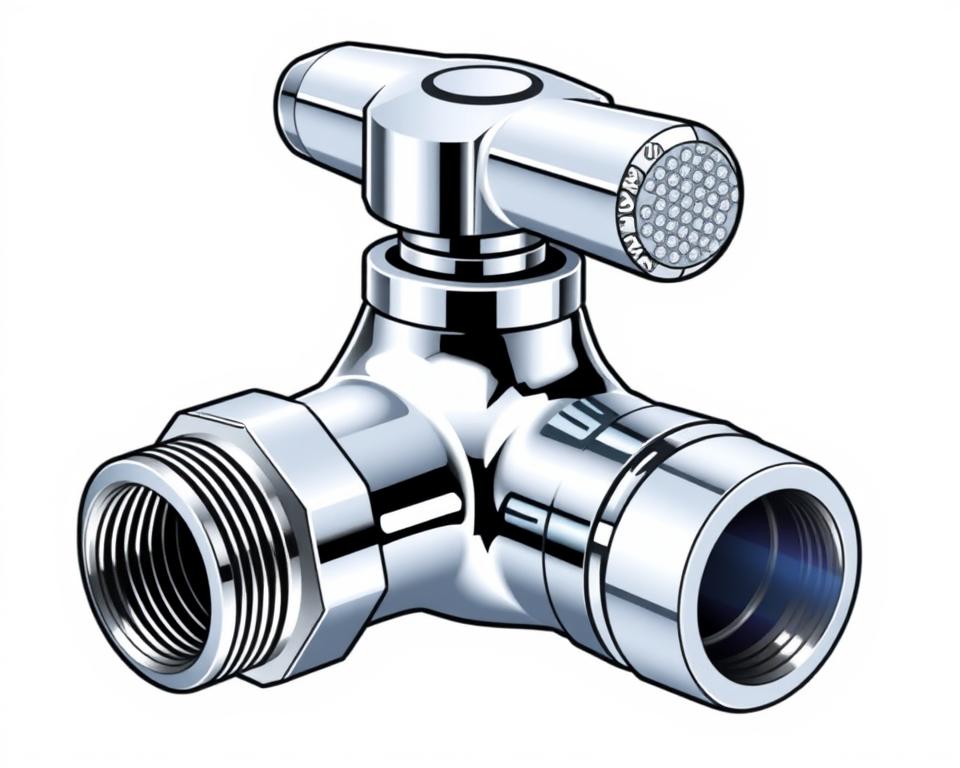Levamisole HCl: Purposes & Side Effects.
Levamisole HCl, initially designed for veterinary purposes, has now become vital in medical medicine. It is recognized by its CAS number 16595-80-5 and EINECS number 240-654-6. This compound is a snow-white crystal powder, noted for its strong anthelminthic effects. It is primarily made in China, complying to stringent USP/BP/EP standards.
Levamisole Hydrochloride is recognized for its potency against Ascaris lumbricoides and hookworms. It is essential for both medical and animal health. However, understanding the likely Cas 240-654-6 negative effects and its proper usage is crucial for secure therapy. This article explores the significant uses, mechanisms, and side effects of Levamisole Hydrochloride. It aims to provide a thorough resource for medical experts and individuals.
Understanding Levamisole HCl?
Levamisole Hydrochloride, frequently referred to as 99% Levamisole HCl, is a crucial pharmaceutical agent. Its unique molecular makeup, C11H12N2S·HCl, makes it a significant element in pharmaceutical intermediates. Recognized by its CAS number, CAS 240-654-6, this compound is recognized by its exceptional cleanliness level of 99%, ensuring both potency and security.
Coming from China, Levamisole HCl is renowned for its conformance to USP/BP/EP pharmacopeia requirements. These strict quality tests ensure its attributes, including recognition, solubility, quality, and test outcomes. Such criteria guarantee its efficacy as an anti-worm agent, essential for eliminating parasitic worms in both humans and pets.
Below is a detailed summary of Levamisole HCl’s essential attributes:
| Feature | Specifications |
|---|---|
| Molecular Name | Levamisole Hydrochloride |
| Molecular Formula | C11H12N2S·HCl |
| Purity | 99% Levamisole Hydrochloride |
| CAS ID | CAS 240-654-6 |
| Origin | China |
| Purpose | Drug Intermediates |
This rigorous quality control ensures that Levamisole Hydrochloride stays a dependable choice within the field of medical intermediates.
Mechanism of Function of Levamisole
Levamisole Hydrochloride shows a sophisticated mechanism that blends immune system enhancement and immediate anthelmintic activity. This dual operation makes it priceless in both medical and animal areas.
Immune System Effects
As an immune booster, Levamisole HCl increases the immune system’s response. It activates various immune cells, aiding in the management of autoimmune diseases like rheumatoid arthritis. The mode of action here involves improving T-cell operation. This leads to better immune surveillance and the removal of pathogens.
Anti-Worm Properties
Levamisole is renowned for its strong anti-parasitic effects. Acting as a parasitic remover, it interferes with the neuromuscular system of parasitic worms. This causes paralysis and death, effectively eliminating the infestation. As an anti-worm agent, Levamisole HCl experiences strict quality control. This guarantees its accuracy and potency in eliminating parasitic worms.
Main Uses of Levamisole HCl
Levamisole HCl has emerged as a versatile compound in both medical and veterinary domains. Its purposes span from parasitic removals to immune-enhancing therapies, influencing a broad variety of medical and veterinary cases.
Human Medicine
In human medicine, Levamisole Hydrochloride is a potent dewormer, addressing parasitic worm infections. It is approved for managing ascariasis and hookworm infections. Moreover, it is used in immunotherapy, enhancing the immune function in various diseases.
Livestock Treatments
For livestock, Levamisole is essential in managing parasitic infections. It ensures the health and productivity of livestock and pets by removing harmful parasites. This compound is vital for cattle, sheep, goats, and household pets, having a key role in their overall health and wellbeing.
Quantity and Application of Levamisole HCl
Levamisole is a multifaceted medication used in both human and animal health. It’s important to comprehend the appropriate Levamisole HCl dose and administration methods for efficient therapy and security.
Recommended Dosages
The suggested dosage for giving Levamisole is between 1.5 to 2.5 mg/kg of body weight. This guarantees the medication is potent and safe, minimizing the risk of adverse reactions. Dosage differs with patient age, weight, and the ailment being treated.
Ways of Use
Administering Levamisole can be done through various methods, considering the patient or animal’s needs. Common forms consist of:
- Pills
- Injectable solutions
- Topical applications (less common)
Usage Recommendations
When administering Levamisole, it’s important to adhere to the dosage guidelines. Here are some administration recommendations:
- Measure and give the accurate Levamisole quantity as a doctor recommends.
- Know the various needs of species for correct administering Levamisole in veterinary settings.
- Consult a veterinarian or healthcare provider to modify dosages according to patient reactions and adverse reactions.
Below is a short table detailing the recommended dosages for various species:
| Species | Dose | Form |
|---|---|---|
| People | 2.5 mg/kg | Oral |
| Cattle | 1.5-2.5 mg/kg | Injectable |
| Lambs | 1.5-2.0 mg/kg | By mouth |
Proper Administering Levamisole guarantees care effectiveness and minimizes negative effects. This leads to better results for individuals and livestock alike.
Possible Adverse Effects of Levamisole HCl
Levamisole Hydrochloride is generally celebrated for its effectiveness. However, it’s important to accept potential side effects. This confirms they are promptly noticed and handled.
Typical Negative Effects
Digestive issues are among the most typical CAS 136-47-0 adverse reactions. These consist of nausea, vomiting, and abdominal pain. Some people may also have headaches. These symptoms, although typically mild, can be very bothersome. They may result in stopping the treatment or changing the dosage.
Severe Adverse Reactions
Levamisole overdose can cause severe health issues. A notable concern is agranulocytosis, which significantly decreases white blood cell counts. This makes people extremely susceptible to infections. Other serious adverse reactions include vasculitis, which is inflammation of the blood vessels, and severe skin reactions such as rashes.
Healthcare professionals suggest close supervision for any negative effects to Levamisole. Regular visits and blood tests are advised to prevent serious complications. This cautious method is important to consider the treatment’s benefits against its risks.
Safety Measures and Warnings
When contemplating the use of Levamisole, it is essential to follow certain safety measures to confirm health and safety. Patients should refrain from Levamisole if they have a known hypersensitivity to the drug or preexisting issues such as liver or kidney disease. These are important Levamisole cautions to minimize any side effects.
Expecting or breastfeeding mothers, as well as those with suppressed immune systems, should talk to a doctor before initiating therapy with Levamisole. This step is crucial for ensuring high levels of Levamisole safety. Additionally, regular blood tests might be necessary to check the medication’s effects on the body, which emphasizes the importance of remaining cautious.
It is just as important to adhere to strict storage and handling protocols to protect the drug’s integrity and efficacy. Correct storage conditions are keeping Levamisole in a cold, dry place away from direct sunlight. These Levamisole advisories are not to be dismissed, as incorrect handling can cause reduced efficacy and potential risks.
| Condition | Measure |
|---|---|
| Allergy | Do not use |
| Liver or kidney disease | Talk to doctor |
| Expectant or nursing | Consult healthcare provider |
| Weakened immunity | Talk to doctor |
| Frequent blood checks | Check compound effects |
| Storing | Cool, dry place away from sunlight |
Levamisole Hydrochloride in Veterinary Medicine
Levamisole HCl is crucial in animal healthcare, addressing parasitic diseases in livestock and pets. It boosts animal health and productivity when used correctly.
Animal Uses
In agriculture, Levamisole HCl is essential to combating parasitic infections in animals. As a powerful Levamisole parasitic remover, it enhances health and productivity in cattle, sheep, and pigs. The dosage must be carefully calculated, taking into account the animal’s species and weight for optimal results and protection.
Safety for Pets
Securing pets’ safety with Levamisole HCl for pets is essential. Veterinarians highlight the importance of accurate evaluation and treatment plans to avoid side effects. Comprehensive assessments help conclude if Levamisole HCl veterinary is suitable for each pet, securing their health and well-being.
Storing and Handling of Levamisole
Preserving Levamisole appropriately is essential for its efficacy and protection. Levamisole HCl should be stored in airtight containers. It should be stored in a cold, moisture-free spot, away from light, moisture, and pests. This guarantees the medication continues to be effective and risk-free for longer.
Here are some instructions for managing Levamisole HCl to maintain its pharmaceutical quality:
| Keeping Guidelines | Recommendation |
|---|---|
| Holder | Sealed, airtight |
| Climate | Room temperature (20-25°C) |
| Surroundings | Chilly, dry, and without light |
| Wetness Regulation | Desiccant packets recommended |
| Bug Avoidance | Maintain in bug-free spot |
| Shelf Life | Stick to shelf life |
By complying to these tips, Levamisole HCl remains within the quality range required by pharmaceutical standards. Proper storage and keeping of Levamisole preserves its efficacy for future use.
Comparisons with Other Medications
When differentiating Levamisole with other therapies, it’s essential to examine their distinct therapeutic profiles and uses.
Comparing Levamisole and Tetracaine
Levamisole HCl and Tetracaine have completely separate medical roles. Tetracaine is a powerful local anesthetic, used to reduce sensation during medical procedures. It works by blocking nerve signals, making it perfect for surgeries and minor medical interventions.
Levamisole, on the other hand, is an immune enhancer and dewormer. Its ability to enhance the immune system and eradicate parasitic infections distinguishes it from Tetracaine. In contrast to Tetracaine, Levamisole HCl is not used for anesthesia. Instead, it plays a key role in managing autoimmune diseases and parasitic infections.
Levamisole vs Procaine
Levamisole HCl and Procaine also have different medical purposes. Procaine, like 99% Procaine Hydrochloride, is a local anesthetic used to cause temporary numbness in certain areas for procedures such as dental work and minor surgeries. It accomplishes this by blocking sodium channels, stopping pain signals from getting to the brain.
Levamisole HCl, however, focuses on improving the body’s immune reaction and addressing parasitic worms. This is a far cry from Procaine’s numbing effect. Levamisole HCl does not serve as a local anesthetic but helps the body’s defense mechanisms and manages infections due to parasitic organisms.
Below is a comprehensive contrast of Levamisole with Tetracaine and Procaine:
| Standard | Levamisole HCl | Tetracaine | Procaine |
|---|---|---|---|
| Primary Use | Immunomodulator and Dewormer | Numbing agent | Numbing agent |
| Method of Function | Enhances immunity, removes worms | Inhibits pain signals | Blocks Sodium Channels |
| Purpose | Addresses autoimmune issues and parasitic infections | Applied in surgeries and small procedures | Employed in dental tasks and small operations |
Understanding the differences between Levamisole HCl, Tetracaine, and Procaine assists medical professionals in picking the most fit treatment for their patients. This confirms less risky and more successful medical outcomes.
Conclusion: Advantages and Cons of Levamisole HCl
Levamisole Hydrochloride is notable as a essential pharmaceutical agent in medical and veterinary medicine. It’s renowned for its potent anthelmintic properties, effectively managing parasitic infections. Additionally, it boosts the immune system in certain clinical settings, making it a popular choice for doctors and vets.
However, Levamisole is not without its drawbacks. The range of Levamisole hazards contains negative effects that range from mild to severe. While minor issues like nausea and dizziness are manageable, critical blood disorders require careful attention. Thus, a detailed Levamisole review must include both its advantages and its risks.
For those evaluating Levamisole Hydrochloride, a thorough grasp is crucial. Health experts and pet owners must meticulously assess the pros of Levamisole against the possible risks. Guaranteeing careful use, correct dosing, and frequent supervision is crucial. This well-rounded method is vital for risk-free and effectively using Levamisole HCl.



